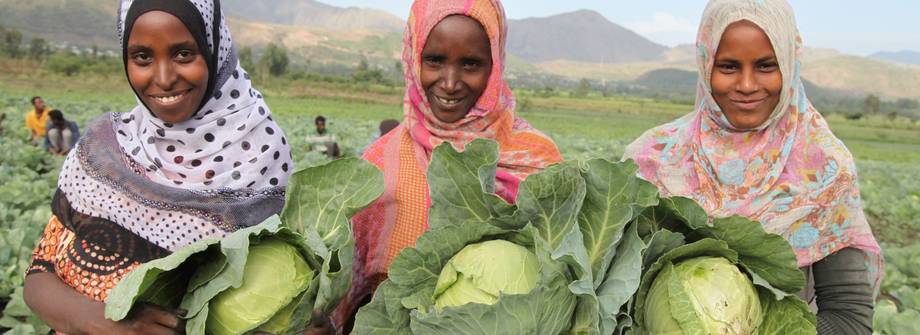The number of people affected by hunger globally rose to as many as 828 million in 2021 (9.8 percent of the world population), an increase of about 46 million since 2020 and 150 million since the outbreak of the COVID-19 pandemic. Today, 3.1 billion people can not afford a healthy diet, and 45 million children under the age of five suffer from wasting, the deadliest form of malnutrition. Looking forward, projections are that nearly 670 million people will still be facing hunger in 2030.
The realization of the right to adequate food is more than a moral duty or a policy choice. It is a human right of every person everywhere to be fulfilled through appropriate actions by governments and non-state actors.
Progress on the recognition of the right to food
Over the years, important advances on the right to food have been made at various levels. Globally, the starting point was the Universal Declaration of Human Rights in 1948, which developed into legally binding agreements such as the International Covenant on Economic, Social and Cutural Rights (ICESCR). Additional legal guarantees have been afforded to specific groups, such as the Convention on the Elimination of all forms of Discrimination Against Women (CEDAW) or the Convention on the RIghts of the Child (CRC).
In 2004, FAO Member Nations adopted by consensus the Voluntary guidelines to support the progressive realization of the right to adequate food in the context of national food security (Right to Food Guidelines), which provide guidance on ways to implement the right to adequate food. The Right to Food Guidelines is a policy tool endorsed by the Committe of World Food Security (CFS).
食物权与粮农组织支持可持续发展目标的工作之间的关联
食物权工作需要采取跨领域方法,一方面贡献于根除饥饿、粮食不安全和营养不良(可持续目标2)的工作,另一方面也对其产生着影响。特别是食物权能够强化营造扶持性环境,从而更迅速地减少饥饿和营养不良:
优化政策设计: 政府侧重关注最脆弱人群,强调多利益相关者参与和进程的透明度并推动实现充足食物权。支持各国通过宪法条文、国家法律法规的形式从法律层面对充足食物权加以保护,并强化各自政策和计划框架落实充足食物权。
增加投资:通过提高政府代表、议会议员和民间社会在预算分析和开支追踪方面的能力,粮食和营养安全领域公共开支的有效性和效率得到提高。
改善治理: 利益相关者对话和协调机制得到加强。民间社会成员权能得到强化,监督政府官员改进粮食和营养安全行动的设计和实施水平。
以证据为基础的支持:人权标准和原则、政策、计划及法律得到定期评估,从而提高其对粮食不安全和营养不良人口的影响并解决饥饿的根源性问题。
粮农组织的食物权工作
粮农组织的食物权团队致力于通过《食物权准则》来落实人类充足食物权。该团队制定有关方法和工具来帮助各利益相关方落实食物权,开展信息通报和教育来提高各权利主体、责任方、民间社会和大众对食物权的认识和理解并支持各国启动落实食物权和《准则》的工作。
该团队与粮农组织法律办公室密切协作,协助粮农组织成员国制定有关法律,推动减少饥饿和消除贫困的工作;与伙伴关系、倡导及能力开发司协作,负责制定有关工具、方法论和长期愿景,帮助粮农组织在粮农组织战略目标所涉及的所有领域积极主动地开拓伙伴关系、宣传有关理念和开展能力建设。

